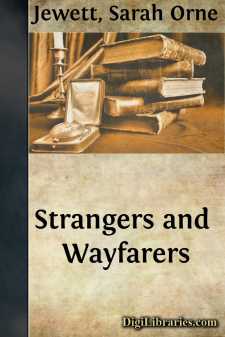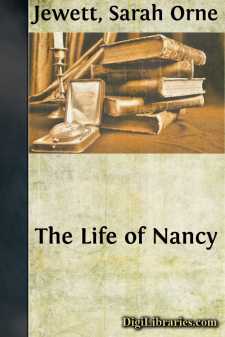Categories
- Antiques & Collectibles 13
- Architecture 36
- Art 48
- Bibles 22
- Biography & Autobiography 813
- Body, Mind & Spirit 142
- Business & Economics 28
- Children's Books 16
- Children's Fiction 13
- Computers 4
- Cooking 94
- Crafts & Hobbies 4
- Drama 346
- Education 46
- Family & Relationships 57
- Fiction 11829
- Games 19
- Gardening 17
- Health & Fitness 34
- History 1377
- House & Home 1
- Humor 147
- Juvenile Fiction 1873
- Juvenile Nonfiction 202
- Language Arts & Disciplines 88
- Law 16
- Literary Collections 686
- Literary Criticism 179
- Mathematics 13
- Medical 41
- Music 40
- Nature 179
- Non-Classifiable 1768
- Performing Arts 7
- Periodicals 1453
- Philosophy 64
- Photography 2
- Poetry 896
- Political Science 203
- Psychology 42
- Reference 154
- Religion 513
- Science 126
- Self-Help 84
- Social Science 81
- Sports & Recreation 34
- Study Aids 3
- Technology & Engineering 59
- Transportation 23
- Travel 463
- True Crime 29
Strangers and Wayfarers
Description:
Excerpt
A WINTER COURTSHIP.
The passenger and mail transportation between the towns of North Kilby and Sanscrit Pond was carried on by Mr. Jefferson Briley, whose two-seated covered wagon was usually much too large for the demands of business. Both the Sanscrit Pond and North Kilby people were stayers-at-home, and Mr. Briley often made his seven-mile journey in entire solitude, except for the limp leather mail-bag, which he held firmly to the floor of the carriage with his heavily shod left foot. The mail-bag had almost a personality to him, born of long association. Mr. Briley was a meek and timid-looking body, but he held a warlike soul, and encouraged his fancies by reading awful tales of bloodshed and lawlessness, in the far West. Mindful of stage robberies and train thieves, and of express messengers who died at their posts, he was prepared for anything; and although he had trusted to his own strength and bravery these many years, he carried a heavy pistol under his front-seat cushion for better defense. This awful weapon was familiar to all his regular passengers, and was usually shown to strangers by the time two of the seven miles of Mr. Briley's route had been passed. The pistol was not loaded. Nobody (at least not Mr. Briley himself) doubted that the mere sight of such a weapon would turn the boldest adventurer aside.
Protected by such a man and such a piece of armament, one gray Friday morning in the edge of winter, Mrs. Fanny Tobin was traveling from Sanscrit Pond to North Kilby. She was an elderly and feeble-looking woman, but with a shrewd twinkle in her eyes, and she felt very anxious about her numerous pieces of baggage and her own personal safety. She was enveloped in many shawls and smaller wrappings, but they were not securely fastened, and kept getting undone and flying loose, so that the bitter December cold seemed to be picking a lock now and then, and creeping in to steal away the little warmth she had. Mr. Briley was cold, too, and could only cheer himself by remembering the valor of those pony-express drivers of the pre-railroad days, who had to cross the Rocky Mountains on the great California route. He spoke at length of their perils to the suffering passenger, who felt none the warmer, and at last gave a groan of weariness.
"How fur did you say 't was now?"
"I do' know's I said, Mis' Tobin," answered the driver, with a frosty laugh. "You see them big pines, and the side of a barn just this way, with them yellow circus bills? That's my three-mile mark."
"Be we got four more to make? Oh, my laws!" mourned Mrs. Tobin. "Urge the beast, can't ye, Jeff'son? I ain't used to bein' out in such bleak weather. Seems if I couldn't git my breath. I'm all pinched up and wigglin' with shivers now. 'T ain't no use lettin' the hoss go step-a-ty-step, this fashion."
"Landy me!" exclaimed the affronted driver. "I don't see why folks expects me to race with the cars. Everybody that gits in wants me to run the hoss to death on the road. I make a good everage o' time, and that's all I can do....










